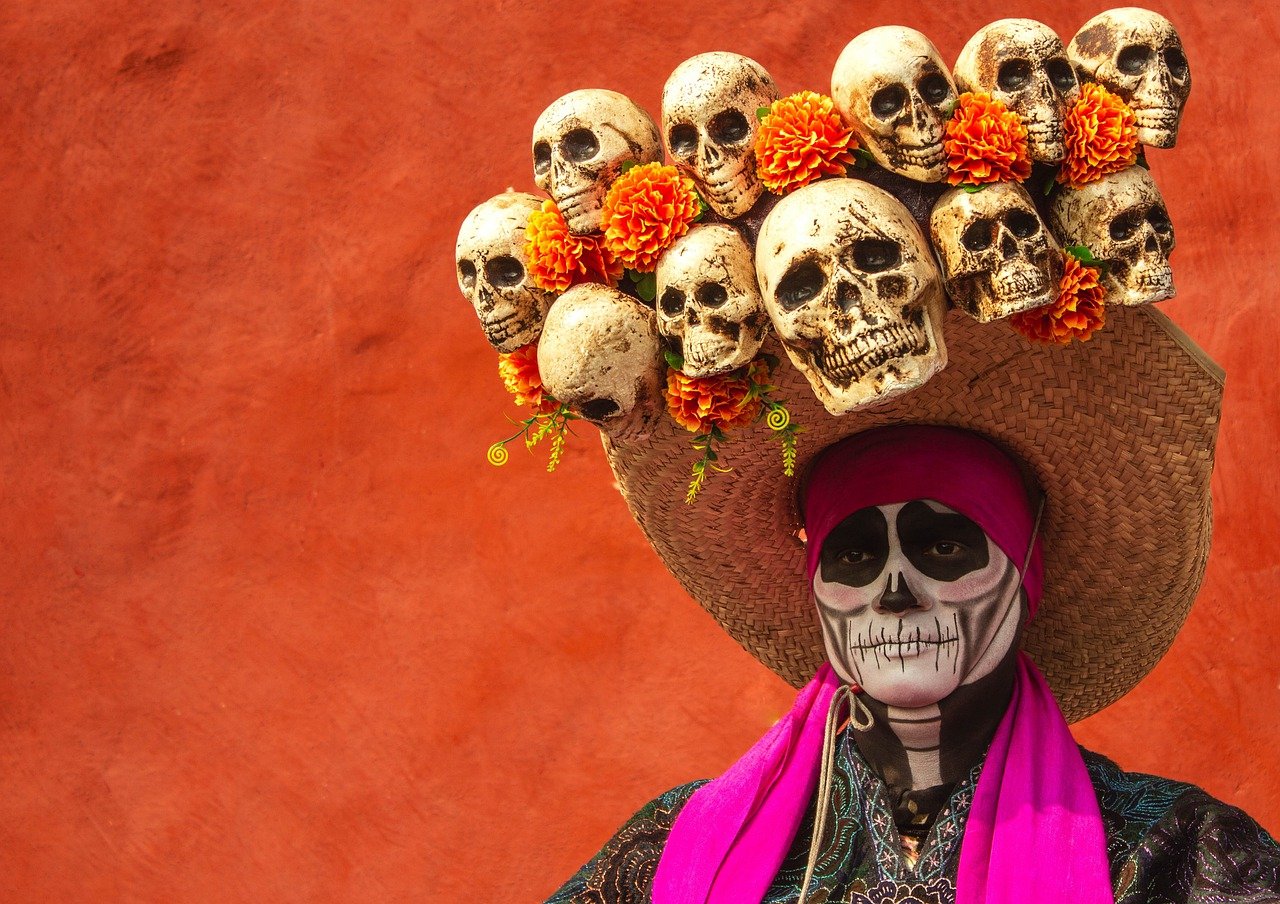
25 Mexican Slang Phrases: Essential Expressions to Learn
When it comes to learning a language, mastering local slang can make a big difference in your ability to connect with native speakers and understand the culture from the inside. In Mexico, Mexican slang phrases are an integral part of daily life, and knowing them will allow you to communicate more effectively, better understand jokes and local expressions, and, most importantly, make you sound like a true Mexican!
In this article, we’ll explore 25 Mexican slang phrases you need to learn if you want to improve your Spanish and better understand Mexicans. From words you’ll hear on the street to expressions used in family gatherings, these phrases will open the door to richer and more authentic communication.
Why Learn Mexican Slang?
Mexican Spanish is known for its variety of colloquial phrases and unique expressions that can be confusing for non-natives. Learning Mexican slang phrases will not only help you better understand what’s being said on the street but also allow you to actively participate in informal conversations without feeling out of place. Additionally, these phrases are a great way to break the ice and show native speakers that you’ve made an effort to learn their version of the language.
Using local slang also helps you avoid misunderstandings. For example, a common word in one country may have a completely different meaning in another. Knowing these differences is crucial for effective communication.

Using Everyday Mexican Expressions
Mexican slang phrases aren’t just empty words; they’re a window into the heart of Mexican culture. They appear in music, movies, literature, and, of course, in everyday conversations. From a surprised “¡Órale!” to an incredulous “¡No manches!”, these phrases color the language and bring it to life.
In any everyday situation, whether you’re shopping at a market, talking with friends, or watching a telenovela, you’ll encounter these expressions. Knowing them will help you better understand what’s happening around you and actively participate in Mexican social life.
The 25 Best Mexican Slang Phrases You Should Know
Here is a list of 25 Mexican slang phrases that will be very useful to you. Each one comes with its meaning and an example of use so you can start incorporating them into your vocabulary today.
Everyday Phrases

- ¡Órale! – Expression of surprise or amazement.
Example: “¡Órale, qué rápido llegaste!” (“Wow, you got here so fast!”) - No manches – Expression of disbelief or surprise.
Example: “¡No manches, no puedo creer que lo hiciste!” (“No way, I can’t believe you did that!”) - Chido – Something cool or nice.
Example: “Ese concierto estuvo bien chido.” (“That concert was really cool.”) - Qué onda – What’s up? or How are you?
Example: “¡Qué onda! ¿Cómo te va?” (“What’s up! How’s it going?”) - Aguas – Warning, be careful.
Example: “¡Aguas con el coche que viene!” (“Watch out for the car coming!”)
Social and Agreement Phrases
- ¡Órale, pues! – Let’s go, okay.
Example: “¡Órale, pues! Vamos al cine.” (“Alright, let’s go to the movies.”) - Chafa – Something of poor quality.
Example: “Este teléfono es bien chafa, no sirve para nada.” (“This phone is so cheap, it doesn’t work at all.”) - La neta – The truth.
Example: “La neta, no me gusta esa película.” (“Honestly, I don’t like that movie.”) - ¿Qué pedo? – What’s up?
Example: “¿Qué pedo, todo bien?” (“What’s up, everything good?”) - Güey – Friend or dude.
Example: “¡No manches, güey, eso fue increíble!” ( “No way, dude, that was amazing!”)
Personality and Mood Phrases

Ready to improve your Spanish with fascinating stories?
- Fresa – A superficial or elitist person.
Example: “No me gusta esa chica, es bien fresa.” (“I don’t like that girl, she’s so snobby.”) - Pedo – Drunkenness, but can also mean trouble.
Example: “Trae un buen pedo” (Está muy borracho) or “No te metas en pedos.” ( “He’s really wasted” or “Don’t get into trouble.”) - Cámara – Okay, agreed.
Example: “Nos vemos mañana, ¿cámara?” ( “See you tomorrow, cool?”) - Mande – A polite way of saying “What?” or “Pardon?”.
Example: “Mande, no escuché lo que dijiste.” ( “Sorry, I didn’t hear what you said.” - Chingón – Something awesome or excellent. (“Ese coche está bien chingón.”)
Translation: “That car is awesome.”
Discontent and Disappointment Phrases
- Chale – Expression of discontent or disappointment.
Example: “Chale, se canceló la fiesta.” (“Damn, the party got canceled.”) - Vale madre – It doesn’t matter, it’s insignificant.
Example: “Me vale madre lo que piensen los demás.” (“I don’t care what others think.”) - Está cañón – Something difficult or complicated.
Example: “Está cañón encontrar estacionamiento aquí.” (“It’s really tough to find parking here.”) - Ponerse las pilas – To make an extra effort.
Example: “Necesitas ponerte las pilas si quieres pasar el examen.” (“You need to step up your game if you want to pass the exam.”) - Dar el avión – To pretend to pay attention or to ignore someone.
Example: “Me estás dando el avión, ¿verdad?” (“You’re just nodding me off, aren’t you?”)
Fun and Playful Phrases

- Está padre – It’s great or it’s cool.
Example: “¡Qué padre está tu casa!” (“Your house is so cool!”) - Hacer la vaquita – To collect money among several people.
Example: “Vamos a hacer la vaquita para comprar una pizza.” (“Let’s pool our money to buy a pizza.”) - Sacarle la garra – To lightly tease someone.
Example: “No te enojes, solo te estoy sacando la garra.” (“Don’t get mad, I’m just teasing you.”) - ¡Qué oso! – How embarrassing!
Example: “¡Qué oso, me caí enfrente de todos!” (“How embarrassing, I fell in front of everyone!”) - Estar hasta las chanclas – To be very drunk.
Example: “Ayer en la fiesta todos estaban hasta las chanclas.” (“Everyone was totally wasted at the party yesterday.”)
How to Master Mexican Colloquialisms
Incorporating Mexican slang phrases into your conversation might seem challenging at first, but with practice, it will become more natural. Here are some tips to do it without sounding forced:
- Listen first: Before using a phrase, listen to how and when native speakers use it. This will give you a better idea of the appropriate context.
- Practice with friends: If you have Mexican friends, practice with them. Ask them if you’re using the phrases correctly and don’t be afraid to make mistakes.
- Avoid overusing: While it’s tempting to use many of these phrases, doing so excessively can sound forced. Use them moderately until you feel more comfortable.
- Be mindful of formality: Some phrases are very informal and may not be appropriate in certain contexts, such as at work or with older people.
Additional Resources for Mexican Spanish
If you’re interested in diving deeper into Mexican Spanish and learning more Mexican slang phrases, here are some useful resources:
- BBC Mundo: Las expresiones mexicanas más peculiares
This article explores some of the quirkiest Mexican Spanish expressions, perfect for adding to your vocabulary. - Mexicanismos: A Guide to Popular Expressions
An excellent resource for learning about the most common expressions and how to use them correctly.

Learning Mexican slang phrases is a great way to improve your Spanish and get closer to Mexican culture. These phrases will help you communicate more effectively, better understand the people around you, and feel more confident when speaking Spanish in Mexico. Remember, practice makes perfect, so don’t hesitate to use these phrases in your daily conversations.
If you want to continue improving your Spanish and discovering more about Mexican culture, we recommend the book Short Stories in Mexican Spanish, which offers a deep dive into Mexican Spanish through fascinating stories.
Ready to improve your Spanish with fascinating stories?






